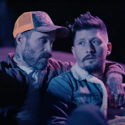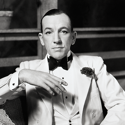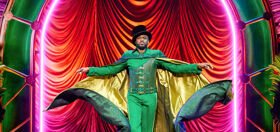
![]() This article was written by Anna Kessel, for guardian.co.uk on Saturday 3rd July 2010 23.00 UTC
This article was written by Anna Kessel, for guardian.co.uk on Saturday 3rd July 2010 23.00 UTC
Martina Navratilova emerges from a late doubles match at Wimbledon looking exhausted. “I just couldn’t see the ball,” she says, motioning confused circles in front of her face, “I couldn’t see.” She has an ice pack strapped to her left hand. There is something distressing about seeing the most decorated player in history looking so out of sorts.
Settling into a taxi, Navratilova asks her agent to unscrew the lid on her drinks bottle and slumps into the back seat complaining of a hectic schedule. “I just really haven’t had a chance to just be. Today it caught up with me. It’s like your body just says, ‘OK can I relax now?’ I was falling asleep in the locker room before the match.”
If she is not feeling so good, it is hardly surprising, given that Navratilova, 53, was diagnosed with breast cancer earlier this year. Two weeks ago, she finished her course of radiation therapy and she says she is now in the clear. “I still have pains though,” says the player who holds more career titles than any other male or female player. “I had some tightness in the shoulder where they took the lymph node out under the armpit and emotionally it’s been really hard. I haven’t really had a chance to just deal with it.”
How about we take this to the next level?
Our newsletter is like a refreshing cocktail (or mocktail) of LGBTQ+ entertainment and pop culture, served up with a side of eye-candy.
What is the hardest aspect for her? “Just having to talk about it,” she says, rolling her eyes. “Every interview now it comes up. That’s difficult.” She stares angrily straight ahead. “[I am ] just generally recovering from feeling like a piece of meat, you know. You go there and get radiated every day; go under this machine and it zaps your boob. It zaps your energy as well. It’s like getting hit over the head with a bat and then you keep coming back the next day and the next day …” she trails off.
“When I had the last radiation, I just wanted to rebel and jump off the table before the time was up. I was so tempted and I’m actually surprised I didn’t. It was like [puts on shouty voice], ‘I’m bloody controlling this, you’re not controlling me’, that’s what it was all about. But I stayed and I was a good girl. I didn’t give the nurses a heart attack.”
That insistence on staying in control is apparent as Navratilova outlines her plans for the summer: playing in a softball league near her home in Colorado, hiking, ice hockey and then the small matter of climbing Mount Kilimanjaro to raise money for children through the Laureus Sport for Good Foundation.
Do her doctors not order her to rest? “Of course they do,” she yells, “I tell my agent, I’m like, ‘I need a break’. We’re constantly fighting. I want to do less. I never like doing press anyway. I just don’t like to put myself out there but I’m promoting a good cause so I do it, same with the breast cancer, same with the gay rights [Navratilova officially came out in 1981] or animal rights. I just don’t search for the limelight.”
It is a strange thing to say for a woman who two years ago spent some time in the jungle in the ITV reality show, I’m a Celebrity Get Me Out of Here – and finished second. Why did she do it? “It sounded like fun and I raised good money for Save the Rhino, which was the biggest reason,” she says, somewhat unconvincingly. “What I did not realise was that you had no privacy whatsoever. I thought you could take a shower in private, but no. If I had known what it was going to be like, I wouldn’t have done it – but I’m glad I did it. It was an interesting experience. I felt like we were a human experiment, you know, they try to get you pissed off and then they get good copy.”
In the gaps between topics of conversation, Navratilova stares vacantly out of the window at the London streets. It is never too long, though, before her brain kicks in and suddenly she is excitedly railing against George Bush or the Iraq/Afghanistan invasions, or calling Bill Clinton a “wimp” for his, ‘don’t ask don’t tell’ policy on gay rights in the military, or getting exasperated at why Americans reacted so badly to her accepting dual citizenship when she took a Czech passport in 2008.
“It was ridiculous,” she says. “I’m an American, but they were attacking me. I’ve lived there for 35 years. That really was hurtful. Then the right wing in America said, ‘well if she doesn’t like it why doesn’t she just go back to the Czech Republic?'”
Her conversation is peppered with comments about life in the former communist regime in Czechoslovakia, where she was born and lived until the age of 18 before defecting to the US. “It was like a prison,” she says, still sounding angry about the hardships of life, without hot water or enough food, or the difficulty of breaching the iron curtain by telephone to speak to her parents from 1970s America.
Still painful now is the memory of having to live with an incomplete identity, feeling neither one nor the other – never quite belonging. “I’ve been an American longer than I’ve been a Czech, but I still feel very Czech.” She says she only ever thinks in English, so what brings out the Czech side of her? “I guess food is really what defines a person’s roots. I don’t know any Czech that doesn’t love to eat. Duck, dumplings and sauerkraut. Mmm … ridiculously good. That will be my last meal when I’m on my deathbed.”
Suddenly Navratilova is distracted by a French bulldog huffing and puffing its way up a hill in Putney. She winds down the blacked-out windows of the taxi and yells, “Hey. So cute. What’s his name?” “Snoopy,” replies the dog’s surprised owner. “Snoopy?” says Navratilova adopting a baby-talk voice. “You don’t look like a Snoopy to me. I have a French bulldog and his name is Spike. Hi Snoopy. Look up here. Oh he’s so cute.”
Snoopy’s owner, stunned by the sight of one of the world’s most famous tennis players talking to her dog, gathers her composure and works up the courage to ask a question. “Enjoying the tennis, Martina?” she asks. “Yeah” says Navratilova airily, and as the dog disappears out of view she promptly winds up the window.
Despite her liking for a plate of duck, Navratilova is a renowned animal lover – at one time she set up a shelter for more than 100 cows, pigs, horses and dogs. She seems happier talking about dogs than tennis and suddenly announces that she tried to adopt a dog from London’s Battersea Dogs Home. “[It was] an English staffy [staffordshire bull terrier], but they wouldn’t let me because I’m not a resident in this country. I was like, ‘But it’s me. I love animals.’ I could have got a friend to get one for me, but I didn’t want to be underhand. I just love staffies, they’re so cute and needy.”
Navratilova smiles, a winning smile. She is used to being charming – and loved – these days, but it was not always so, and at the height of her career the crowd rarely warmed to her. Serena Williams, who has been so dominant at Wimbledon this year, seems to suffer from the same problem. Does she feel a kinship with Serena? “She gets very emotional, fired up and competitive. She’s very intimidating. That’s the biggest similarity between the two of us. Off the court, I don’t know … she doesn’t really open up much to the world.”
Both women have been described in freakish terms – sneered at for being too muscular or too dominant in their sport. Navratilova nods. “Serena is so physically dominating, people are feeling sorry for her opponents – they were feeling sorry for mine. I was very strong, I was very muscular and I played a very aggressive game,” she says. “But it’s because she is so strong that she wins and she’s proud of her body. She doesn’t apologise for it and I like that. She’s like, ‘hey I’m a strong woman and get out of my way’.
“If she was a guy they’d love it, but they get intimidated by women being that strong. I empathise with that because I definitely went through it. It’s tough because you feel like you’re fighting [against the crowd] – it’s hard enough fighting the opponent. And you do feel it, you know, not getting that love. It’s not fair.”
Does Navratilova feel frustrated that even after all these years women’s tennis is still reduced to conversations about backsides? “Please, it’s ridiculous,” she says, before pointing out the distinction between appreciating physical beauty and being derogatory. “You know, I was looking at Rafa [Nadal], we did an interview with him, and as he walks in I’m like, ‘my God, he’s got a great butt.'”
She laughs. “I mean he’s gorgeous. That’s a compliment, but not in a sleazy way. The problem with the women is it just becomes very degrading because they’re not talking about them as a person or as an athlete, they’re taking about them as a sexual object. I don’t like that.” Is she still excited watching women’s tennis? “Sure,” she says, vaguely, but seconds later she is asking if the interview could come to an end. “I’m pretty cooked.”
Her agent tells her he has secured two tickets to a Pink concert the following evening and Navratilova begins a story about a French cat and Lady Gaga. “I was supposed to see Lady Gaga in Paris, but I was looking after my friend’s cat and it had an accident,” she says. “I had to call a vet. The cat was fine. Can you believe it? But I missed the Lady Gaga concert.” What kind of accident did the cat have? “That’s not for publication,” she says curtly.
The mystery of the unpublishable accident of the French cat hangs in the air as we arrive at her destination, a hotel in Mayfair. The woman who won an awe-inspiring total 59 grand slam titles disembarks and wearily manages one more smile to say goodbye. It will not be long before we hear of her next adventure.
guardian.co.uk © Guardian News and Media Limited 2010


















Sceth
It was a cute article, but I don’t come to Queerty to read anything like this. Get back into your niche, Puppy.
jeffree
The chances of Ms. Navratilova reading this are about the same as my odds of winning the lottery, but I’m willing to gamble:
Martina: I approached you at a book store in Colorado about 8 years ago. I said “Hey, don’t mean to bother you, but I just wanted to say THANKS”
You flashed a megawatt smile and asked “Thanks for what?”
Me: “Thanks for being a champion, for fighting sexism & homophobia & for the animals” [that’s the short version, i’m not so articulate as that]
Martina: “Thanks for saying that! You’re a brave guy! We all have to fight, you know. Keep on!”
– – – – –
Less than 20 seconds but I won’t ever forget it.
p.s. She is so right about Nadal! Huge fan of Federer and Roddick, here, but she has a point!
JOAN DEVRY
Wonder what ever did happen to that Pet Sanctuary she and her partner Toni, created? Heard she was looking to sell the sanctuary and relocate all the animals on it!!! How does one relocate a rescue? Hopefully they were not harvested after adopted out.
gaga4gaga
LOL she’s so funny! I used to watch Martina Navratilova when I was in grade school and actually wanted to play tennis because of her intensity on court. She’s so inspiring, just like Lady Gaga! And it’s fun to see that she likes regular things like going to a Lady Gaga concert. She may be 53 but she’s still smart and witty.